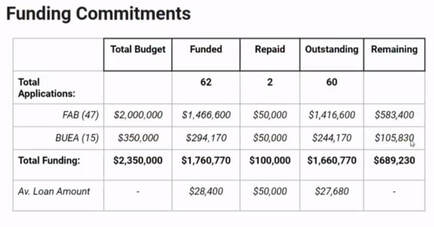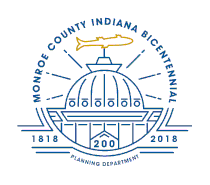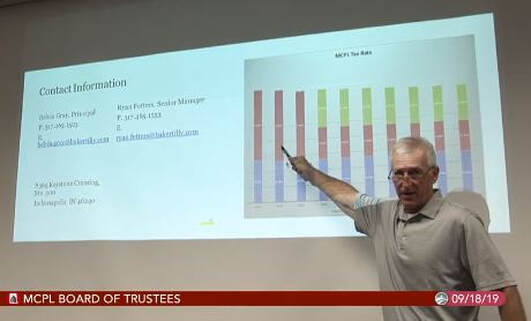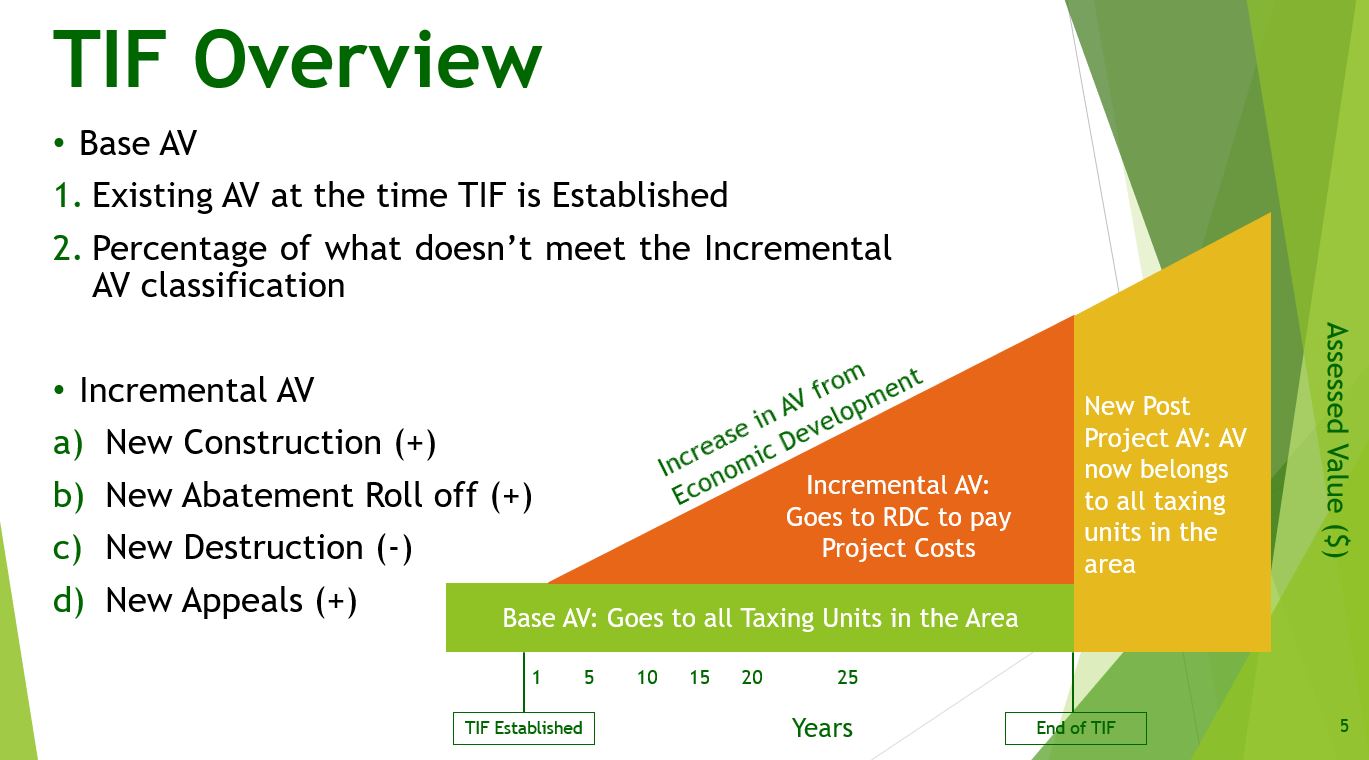 Consultants with Baker Tilly presented a financial analysis of proposed annexation at the Monroe County Council on July 27. The report was commissioned by the county to independently assess the financial impact of Bloomington's annexation. The report noted some variances between the Baker Tilly analysis and the City of Bloomington's fiscal plan, which is posted on the city's annexation website. Some of those variances are due to different approaches taken in calculating the impact. For example, the city used 2019 assessment data, while the Baker Tilly consultants used data from 2020. Read the report here. Watch the Baker Tilly presentation on CATS here. An "impact calculator" is available on the county's website. The county has scheduled three public forums to discuss the Baker Tilly report:
The Bloomington Council will hold a public hearing on annexation at their Aug. 4 meeting starting at 3 p.m. The council is expected to vote on Sept. 15. More about the city's annexation process here.
0 Comments
 Rendering of the new library branch. Rendering of the new library branch. At its June 8 meeting, the Monroe County Council approved issuance of two series of bonds to pay for the construction of a new Monroe County Public Library branch and renovations at other facilities. Series A bonds were approved to be issued in an amount not to exceed $2 million and will be payable over a period ending not later than Jan. 15, 2030. Those bond proceeds will be used for the renovation of and improvements to existing library facilities and purchase of equipment. The Series B bonds, together with the Series A bonds, will be issued in an amount not to exceed $6 million and will be payable over a period ending not later than Jan. 15, 2041. Proceeds of the Series B bonds will pay costs of the design, acquisition, site development, construction, equipping and furnishing of a new library branch. Read the meeting packet materials related to the bond approval here.  Staff from Bloomington's Economic & Sustainable Development Department updated City Council at their Nov. 4 meeting about the status of the Rapid Response Fund loan program. To date, 62 loans have been granted totaling $1,760,770 using funds from both Food & Beverage Tax revenues and the Bloomington Urban Enterprise Association (BUEA). The loans are intended to help local businesses that are impacted by the COVID-19 pandemic. Chamber CEO Erin Predmore serves on the city's Economic Stabilization & Recovery Working Group, which oversees the Rapid Response Fund. Mary Morgan, the Chamber's Director of Advocacy & Public Policy, serves on the BUEA board. Click here to read the staff memo on the Rapid Response Fund update. Click here to watch a recording of the Nov. 4 presentation to council.  The Monroe County Council is holding its 2021 budget work sessions starting Tuesday, Sept. 8. Here’s the lineup: TUESDAY 9/8 at 4 p.m.: Zoom link Starts with public commentary from 4-5 p.m. Then overview, courts, probation, youth services, jail/correctional center, and sheriff. WEDNESDAY 9/9 at 5 p.m.: Zoom link Treasurer, prosecutor, recorder, extension services, assessor, aviation, clerk, planning, surveyor, parks & recreation. THURSDAY 9/10 at 5 p.m.: Zoom link Public defender, coroner, legal, weights & measures, veterans affairs, HR, emergency management, building commission, technical services, highway, board of commissioners. FRIDAY 9/11 at 5 p.m.: Zoom link Solid waste, fire protection district, county fair board, health, auditor, county council, central dispatch, local income tax review, final budget discussion. Details about the Monroe County budget process are available at this website.  Bloomington Council is holding its 2021 budget hearings from Aug. 17 through Aug. 20. All sessions start at 6 p.m. Here’s the lineup: MONDAY, 8/17: Zoom link Overview, HR, Clerk, Legal, IT, Council, Controller, Mayor TUESDAY 8/18: Zoom link Fire and Police WEDNESDAY 8/19: Zoom link Public Transit, Housing Authority, HAND, Economic & Sustainable Development, Community & Family Resources, Parks & Rec THURSDAY 8/20: Zoom link Utilities, Planning & Transportation, Engineering (new department), Public Works (includes animal control, parking, street/traffic, etc.) Council Commentary The 338-page budget book with more materials is posted here.  On Tuesday, June 30, the Monroe County Council is holding a special meeting to address community concerns about law enforcement resources. The session on Zoom begins at 6 p.m. and will be facilitated by Latosha Williams, associate director for residence life student conduct at Indiana University. Meeting details, including the agenda and Zoom link, are here. The seven-member Monroe County Council is responsible for appropriating all funds for county use. The council adopts the county budget – including the sheriff's office budget – fixes the county tax rate, and has exclusive power to borrow money for the county.  Gary Lettelleir, MCPL finance manager Gary Lettelleir, MCPL finance manager The Monroe County Public Library board has taken several steps toward building a new branch in the southwest area of Monroe County, though a specific location hasn't yet been announced. At its Sept. 18 meeting, the MCPL board unanimously approved issuing a 20-year bond for up to $5 million for the project, which is estimated to cost about $10 million. The total financing would include cash from reserves as well as operating receipts. The library plans to fund this project without a tax increase. On Sept. 18, trustees also approved hiring Bose McKinney & Evans LLP of Indianapolis to serve as bond counsel and Baker Tilly Virchow Krause LLP, headquartered in Chicago, to serve as municipal a advisor for the library. Gary Lettelleir, MCPL finance manager, told trustees this was the "first step for issuing a bond to pay for the new southwest branch construction." Click here to view the supporting documents, including a project timeline, provided in the board packet. Marilyn Wood, MCPL director, told trustees that the timeline is "more aggressive than we anticipate." The board has previously approved hiring Matheu Architects for this project. That firm also designed the Ellettsville branch. Click here to watch the bond presentation at the MCPL board's Sept. 18, 2019 meeting. On Wednesday, Sept. 25, the MCPL board will hold a public hearing on its 2020 budget. The meeting starts at 5:30 p.m. at the downtown library, 303 W. Kirkwood Ave., Room 1B.  Brian Payne, assistant director of economic and sustainable development for the City of Bloomington, will be the founding executive director of CDFI Friendly Bloomington, a new nonprofit focused on local community development. He'll begin the job on Sept. 3. CDFI Friendly Bloomington, a 501(c)(3), is a community development financial institution formed in 2018. Its purpose is to provide investments for projects that don't qualify for conventional financing, as a way to catalyze small business growth, expand affordable housing and support community facilities in Bloomington and Monroe County. Four local and regional banks – First Financial Bank, Old National Bank, German American Bank, and Woodforest National Bank – committed a total of $2 million in senior debt financing to CDFI Friendly Bloomington. In addition, the Bloomington Urban Enterprise Association (BUEA) and the Bloomington Redevelopment Commission each made $1 million capital grant commitments. In his role at the city, Brian has also served as BUEA's director. Alex Crowley, the city's director of economic and sustainable development, announced Brian's departure at BUEA's Aug. 14 meeting. He noted that in addition to this job transition, Brian recently moved to a new home and celebrated the birth of his daughter, Morrow – named after the county in Ohio where Brian and his wife met while campaigning for Barack Obama. Alex joked that these three major life events are "the trifecta of stress inducement." The city will be searching for a replacement, but that job has not yet been posted on the city's employment portal. CDFI Friendly Bloomington's board of directors includes:
Click here for more information about CDFI Friendly Bloomington. Read a white paper on this project here.  How does our local government set priorities for funding projects? Youth Participatory Budgeting (YPB) is a program that helps young residents learn this process by allocating real dollars for projects they propose. The City of Bloomington's 2019 budget includes $15,000 for a new YPB program. Students who attend a Monroe County school and who will be in grades 8-12 at the beginning of the 2019-2020 school year are invited to participate. Proposed projects must benefit the general public in one of the following categories: arts/culture, education, environment, recreation, social concerns or "other." Several communities nationwide have launched some type of participatory budgeting, including Boston, Seattle, New York City and Denver. Get more details about Bloomington's effort on the city's YPB website, including a timeline for this process. Ready to apply? Click here. And follow the process on Instagram at YPB Bloomington! Want more info? Check out this post on CitizenLab: "8 Steps to Effective Participatory Budgeting." Tax Increment Financing (TIF) is one of the economic development arrows in the quiver of municipal financing. In the City of Bloomington, TIF funds are overseen by the Bloomington Redevelopment Commission. Click here to read the city's 2019 annual TIF report. At the RDC's June 3 meeting, the group received an annual report on TIF revenues and allocations. (You can watch the presentation on CATS here and view the Powerpoint here.) In 2019, TIF revenues are projected to reach about $10.6 million. How does TIF work? TIF is a way to“capture” certain property taxes to be used in a specific geographic district – taxes that would otherwise be used by entities with the authority to levy taxes in that district. In Bloomington, a portion of the property taxes that would otherwise be collected by taxing units (like the city, county, and public schools) is instead used by the city for projects within the TIF district. In Bloomington, six TIFs are combined into a consolidated district. Click here for details about the city's TIF, including maps of the TIF districts.
How are TIF revenues calculated? The captured tax is only that which applies to the difference between (1) the baseline value of the property when the district was first formed, and (2) the value of the property after new construction or improvements to the property. That difference is the “increment” in “tax increment finance.” Projects funded by TIF revenues include Switchyard Park, the Trades District, street and sidewalk repair, and redevelopment of the IU Health Hospital site. Future projects might include funding the expansion of the Monroe County Convention Center. |
Categories
Categories
All
Archives
Archives
May 2024
|
|
Copyright The Greater Bloomington Chamber of Commerce. All Rights Reserved.


 RSS Feed
RSS Feed
